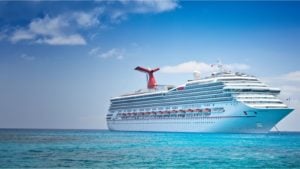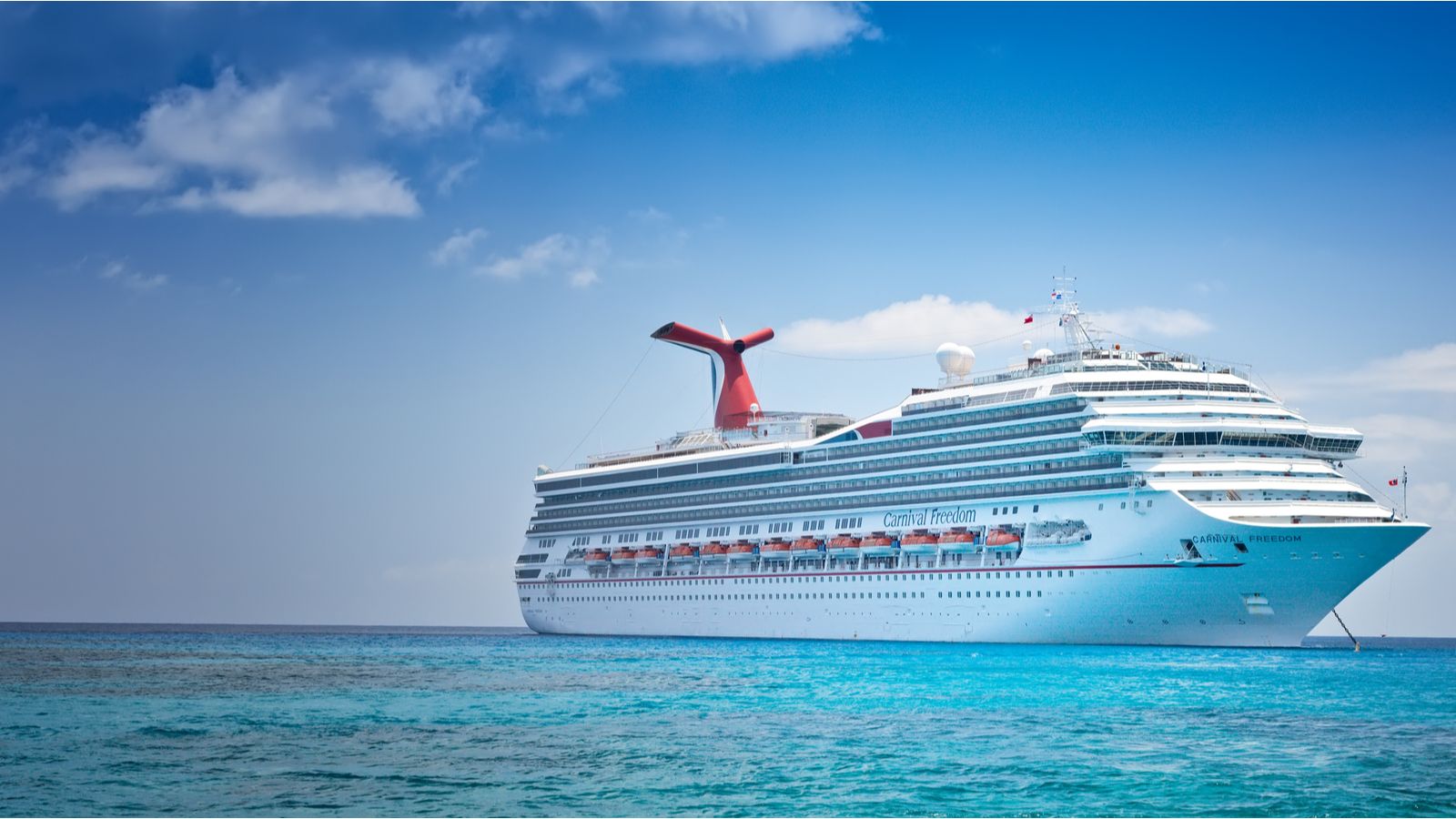On July 29, Carnival (NYSE:CCL) filed non-cash material impairments with the Securities and Exchange Commission (SEC) that totaled as much as $650 million. CCL stock dropped on the news.

Part of the impairment charges has to do with the sale of some of its cruise ships. There’s no question all of the large operators must downsize in the wake of the novel coronavirus. And while some of the sales were planned pre-Covid-19, it’s probably not a bad thing to shrink the fleet.
Ultimately, this isn’t news to sink CCL stock. A 9% reduction in Carnival’s overall capacity could be just what the doctor ordered. What I do know is that there’s never been a better time to buy a used cruise ship.
What Does This Downsizing Mean to CCL Stock?
In total, Carnival is selling 13 of its ships, some of which are leaving the fleet earlier than intended. Carnival announced the acceleration of its fleet sales as part of its business update and release of second-quarter results on July 10.
It’s been two weeks since Carnival released its Q2 2020 results. As expected, they were awful.
On the top line, revenues dropped 85% to $740 million. With a quarter-end of May 31, I’m amazed it had anything to show for its troubles. That’s a silver lining. On the bottom line, it had an operating loss of $4.18 billion, 911% worse than in the same quarter a year earlier. With operating margins of 10% or less, Carnival has little wiggle room at the best of times.
What’s interesting is that Carnival used $3.5 billion in free cash flow in the second quarter, down considerably from a positive free cash flow of $148 million in the same quarter last year. While that seems awful, it still has a positive free cash flow of $650 million over the trailing 12 months. So, all is not lost.
It Continues to Burn Cash
However, my InvestorPlace colleague, Mark Hake, recently suggested that despite the company selling 13 ships, cutting $5 billion in capital expenditures over 18 months, and reducing annual operating expenses by $7 billion, it would still burn $650 million in cash monthly.
Just once, I’d love to be able to burn through $650 million in a single month. But seriously, that paints a pretty gloomy picture. I guess that’s why nine out of the last 10 InvestorPlace article’s about Carnival have been very bearish.
Only Tyler Craig’s had anything remotely positive to say about the cruise operator. He pointed out July 14 that Carnival’s new bookings were trending close to “historical averages,” suggesting that there are people out there willing to cruise again.
Anecdotally, I was at dinner the other night and the table next to us (social distanced, of course) had four people in their 60s talking about the cruise they were going to take. I don’t know the scheduled departure date, but it’s something I’ve felt those in the media have been overplaying since the pandemic first began.
Business Will Return
In late April, in an article about Royal Caribbean (NYSE:RCL), I stated I thought cruising would return to normal.
“Approximately 14.2 million of the 28.5 million cruise passengers in 2019 came from North America. Unless those people suddenly find a better option, I find it hard to believe they won’t go back to cruising once all the excitement has died down, and the cruise industry has come up with a gameplan to keep its passengers safe in the future,” I wrote April 29.
“No, they won’t go back right away, which is why cruise companies are bracing for no revenue through the remainder of 2020. However, unless I’m missing something from the protests taking place by people opposed to the stay-at-home restrictions placed upon them, there is a segment of the population who won’t have a problem taking a cruise soon.”
While there’s no question, it’s going to take the better part of 2020 and 2021 to get back to historical cruising numbers. That’s just a fact of life. And it’s a reality that I believe all of the cruise operators have come to accept.
Hence the sale of ships. It makes no sense to have older, inefficient ships in your fleet if the traffic doesn’t warrant it. In the meantime, Carnival and the others continue to make plans for newer, better ships.
“As part of Carnival’s 50th birthday in 2022, a November 2022 delivery date for the unnamed, second Excel-class ship has been confirmed from the Meyer Turku shipyard. The sister ship to Mardi Gras will showcase many of her features, including BOLT, the first roller coaster at sea, and sail out of PortMiami as previously announced,” Carnival’s July 23 press release stated.
As they say, the show must go on.
The Bottom Line
I said in late June that investors interested in owning CCL stock should wait for it to return to single digits. It’s getting closer but still has a ways to go.
Long term, I believe Carnival stock returns to the $40s or higher, once a vaccine is found, and the world figures out how to cope with Covid-19, as we’ve done with the flu. If you’re an aggressive investor, buy some now, and wait for it to fall into single digits. Unlike most of my colleagues, I’m bullish on the cruise industry.
Will Ashworth has written about investments full-time since 2008. Publications where he’s appeared include InvestorPlace, The Motley Fool Canada, Investopedia, Kiplinger, and several others in both the U.S. and Canada. He particularly enjoys creating model portfolios that stand the test of time. He lives in Halifax, Nova Scotia. At the time of this writing Will Ashworth did not hold a position in any of the aforementioned securities.
